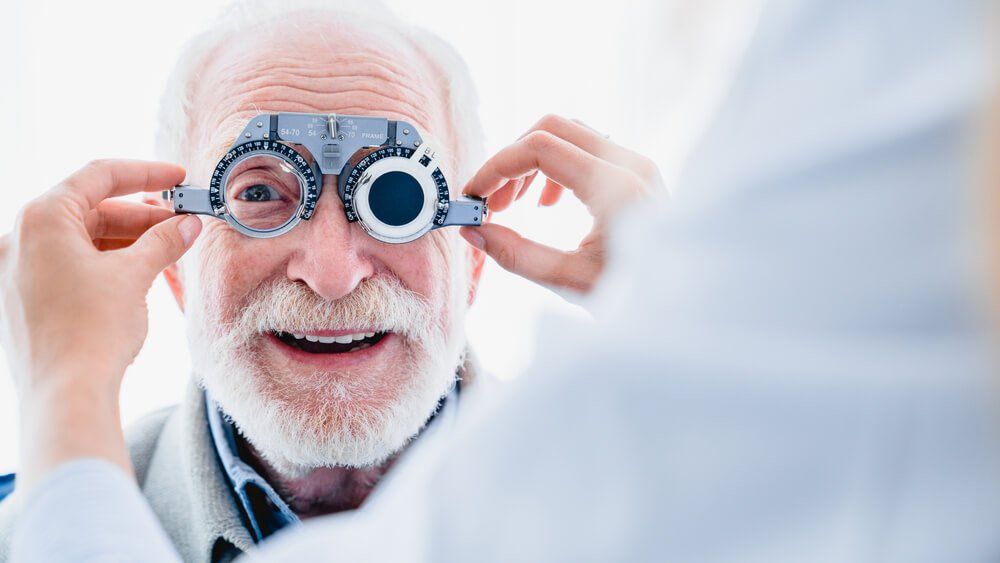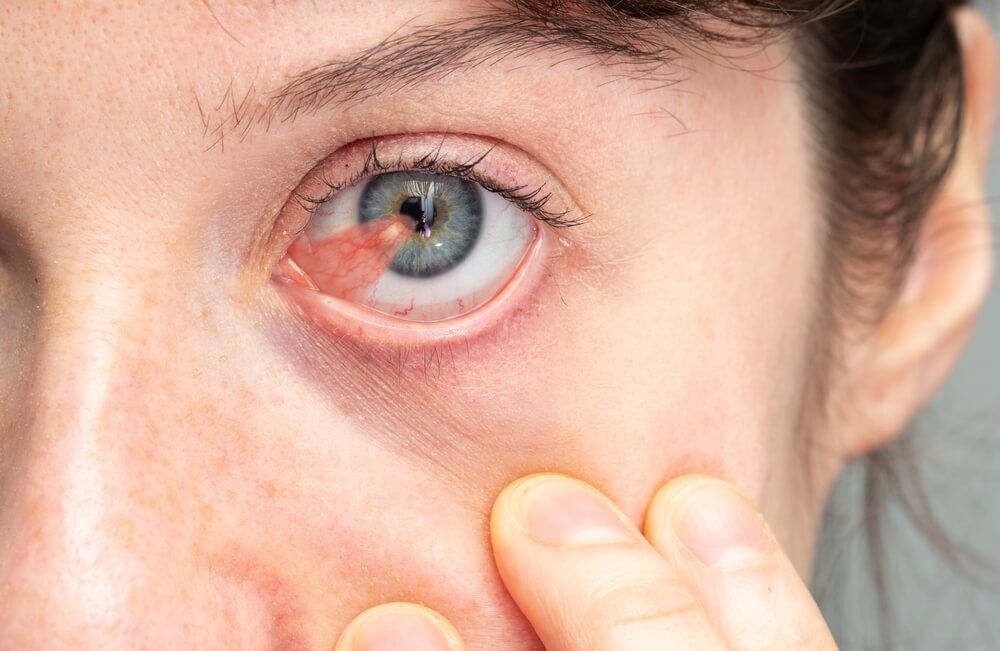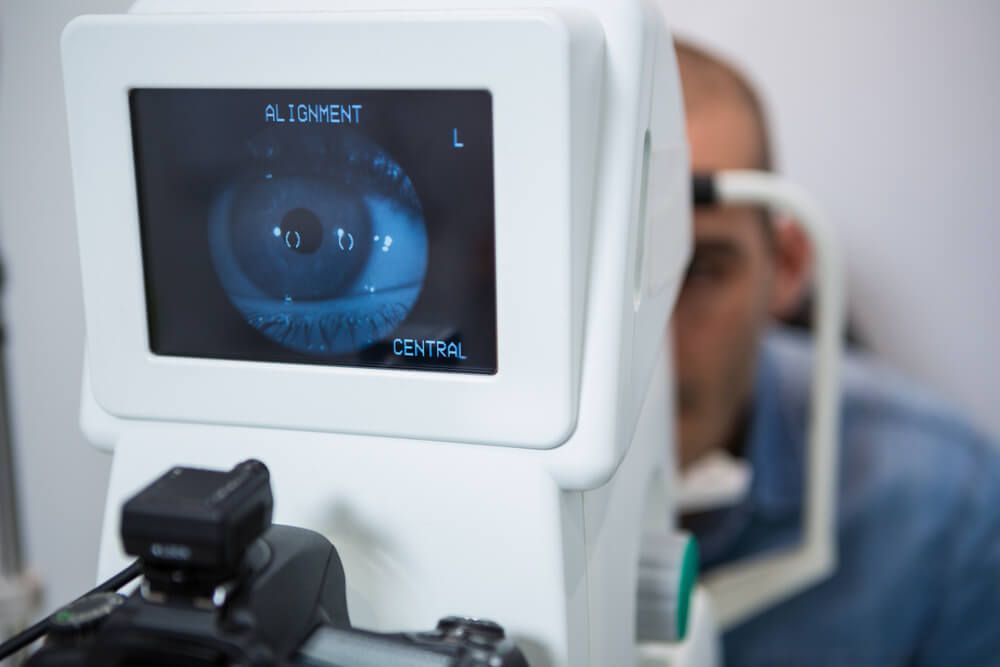What is a Pterygium?
A pterygium is a wedge-shaped growth of abnormal tissue that forms on the surface of the eye. While it is benign (non-cancerous), it extends onto the cornea (the clear front ‘window’ of the eye), where it may affect your vision by altering the shape of the cornea.
A pterygium can usually be seen as a fleshy, pink growth from the white of the eye and may occur in one eye or both. They occur most often in the corner of the eye, close to the nose. Many people with a pterygium feel as if there is something in their eye. Pterygium symptoms include dry eye, irritation, inflammation and redness. A pterygium can blur or even obscure vision.
It is thought that environmental factors such as UV light are the cause of pterygia. People who live in sunny regions and spend a lot of time outdoors have a higher chance of developing a pterygium than others. The risk is also increased by not wearing sunglasses or a sun hat.
Contact us at
130eye on
07 4779 8008
to discuss pterygium surgery or book an appointment with Dr Glastonbury. Please note that you will require a referral from your general practitioner or optometrist.
Our practice is open Monday-Friday and is located at Ross River Rd in Townsville.


Post-Operative Care for Pterygium Surgery
DO’S
PLEASE LEAVE YOUR EYE PAD ON UNTIL THE MORNING FOLLOWING SURGERY
- Use eye drops as directed – See below instructions.
- Do not drive with your eye pad on.
- Wear sunglasses – You will be extremely sensitive to glare for 4-6 weeks following surgery.
- You may read or watch TV; you will not harm your eye.
- You may drive your car if you feel your vision is satisfactory BUT NOT on the day of surgery.
- Bathe your eye twice a day (morning & night) for ONE WEEK following surgery with saline solution. You will need to use a clean gauze square for each wipe. Wipe from the inner corner of the eye, then outward. Discard this gauze and use a fresh one for each wipe of the eye. DO NOT WIPE THE EYE, ONLY THE LIDS.
- Use your drops after each bathing and at the other times as directed.
- You can wash your hair under the shower if necessary but close your eyes.
CONTACT THE SURGERY IF:
- Your vision deteriorates.
- If you experience severe pain.
- If you develop a discharge from the eye.
DONT’S
- Don’t rub your eye.
- Don’t enter dusty or windy environments without sunglasses.
- Don’t be concerned when your eye remains red for up to 4 weeks following surgery.
- Don’t be concerned about a gritty sensation in your eye; your eye will remain irritated for some weeks following surgery; part of this sensation is caused by dissolving stitches and partly because your eye is dry.
- Don’t be concerned if your eye waters. You may want to increase your lubricant drops; this will not harm the eye.
- Don’t go swimming until your next appointment with your eye doctor.
DROPS
You have three types of drops:
- TOBREX (antibiotic drop) 4 times a day.
- MAXIDEX (anti-inflammatory drop) 4 times a day.
- REFRESH (lubricant drop) 4-6 times a day if necessary.
PLEASE BE ADVISED THAT THE POST-OPERATIVE PERIOD FOLLOWING SURGERY IS UNCOMFORTABLE. YOU SHOULD ARRANGE TO HAVE AN EFFECTIVE PAIN RELIEF AVAILABLE FOR THIS PERIOD OF TIME, BEST TAKEN IMMEDIATELY FOLLOWING SURGERY. DO NOT USE ASPIRIN FOLLOWING YOUR EYE SURGERY. BEST TIMES FOR YOUR DROPS ARE BREAKFAST, LUNCH, DINNER AND BEDTIME.
Frequently Asked Questions
-
What is a field test for, and why do I have to have this test?
The visual field test is a subjective measure of central and peripheral "side" vision and is used to diagnose and monitor the severity of visual field loss. The most common visual field test uses a light spot that is repeatedly presented in different areas of your peripheral vision. This test assists the doctor in deciding what best way to treat your condition.
-
Will the doctor do my minor procedure at the practice on the day of my consultation?
It depends on what type of procedure you may need to have. You may not necessarily have the procedure carried out on the same day as your consultation.
-
How do pterygiums affect vision?
Pterygiums usually don't affect vision unless they grow large enough to cover the pupil. If this happens, it can cause blurred vision. You may also have difficulty wearing contact lenses.
-
What causes pterygiums?
The exact cause is unknown, but pterygiums are more common in people who spend a lot of time outdoors in sunny climates. If you spend a lot of time outdoors, you can reduce your risk by wearing sunglasses and a wide-brimmed hat.
Have a Referral? Book Now.
Eye Problems
Operating Hours
- Monday
- -
- Tuesday
- -
- Wednesday
- -
- Thursday
- -
- Friday
- -
- Saturday
- Closed
- Sunday
- Closed
Get In Touch
All Rights Reserved | 130 Eye



